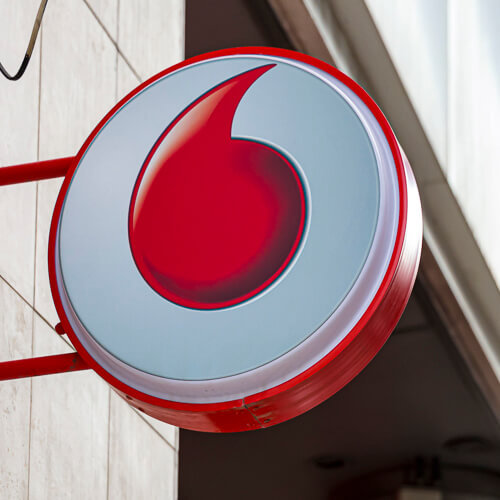
Vodafone formally unveiled this week its partnership with Topcon Positioning Group, a US supplier of global navigation satellites systems (GNSS) correction services, to develop a "new mass-market precise positioning system."
Edmund Wontner, IoT technology partnerships manager at Vodafone, describes a potential end game of fully integrating GNSS correction services within the control plane of the operator's international IoT networks – with open standards supporting a multivendor environment – while also giving further "assurance" to customers that location information is water-tight accurate. But it's going to take time.
Figure 1:  European trials start soon but Vodafone exec warns it could take years before service becomes a mass market proposition.
European trials start soon but Vodafone exec warns it could take years before service becomes a mass market proposition.
(Source: l_martinez/Alamy Stock Photo)
"We're on a journey," Wontner told Light Reading. "One of the big challenges is scaling the service from small numbers of users to millions over time, while also introducing the new features desired, such as true end-to-end integrity. It could take several years."
On trial
With the lure of offering outdoor location accuracy to "within centimeters" through the use of on-the-ground GNSS reference stations, which send "correction data" to GNSS receivers to compensate for wayward info, Vodafone and Topcon are currently in the process of inviting "select customers" in Germany, Spain and the UK to engage in "advanced" trials. The proof-of-concept work, said Wontner, has already been done.
Target markets include IoT devices, machinery and the V2X (vehicle to anything) sector. Trials, said the duo, could be up and running before the end of this month.
Vodafone enthused about Topcon's "dense European network of thousands of GNSS reference stations," and how accuracy can be reduced from meters to centimeters, "especially when vehicles and devices are fitted with suitable antennas and receiver equipment."
"The collaboration with Topcon complements our existing asset tracking and fleet telematics solutions," said Justin Shields, director of Vodafone's business platforms and solutions, in prepared remarks.
The new service, somewhat unimaginatively – but certainly to the point – is dubbed Vodafone GNSS Corrections.
Long and winding road from NTRIP to SUPL
One reason why Wontner envisages a journey lasting several years, however, is to do with protocol adoption and their supported features.
He says Vodafone's first pilot trials with customers in Europe, as a base case, will use RCTM (radio technical commission for maritime) services – where the IoT network functions as a carrier for 'over-the-top' GNSS correction services over a standard IP connection – simply because it is widely available and devices using it can be sourced easily.
"Yet the current method of the RTCM setup, which uses the NTRIP protocol, isn't yet really designed to scale," noted Wontner.
Want to know more? Sign up to get our dedicated newsletters direct to your inbox.
Wontner thinks the 3GPP LPP (LTE positioning protocol) standard – using the SUPL protocol, for example, and when combined with other service enrichments – will enable Vodafone to scale better, especially when it comes to UE device service authentication. 3GPP devices, however, are not readily available
"As we look forward, additional module pre-integration or software overlays will be generally required, which is why we're focusing on supporting mainstream standards," added Wontner.
Although Vodafone has picked Topcon, a "credible GNSS systems manufacturing partner" in Wontner's book, there are other (sometimes proprietary) solutions competing in the market.
"Who and what formats will win out is a narrative that will play over the next several years," he said, "but we are pushing for open standards."
Related posts:
— Ken Wieland, contributing editor, special to Light Reading
Read more about:
EuropeAbout the Author(s)
You May Also Like












